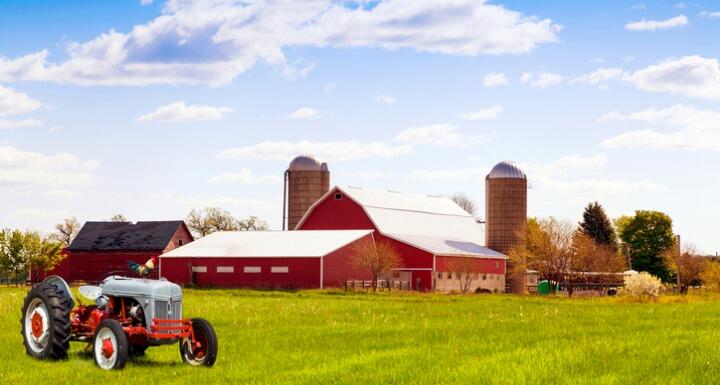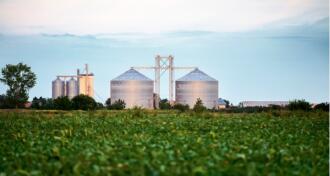The North Carolina Chamber of Commerce, through its "Ag Allies: Landscape-Shifting Legal Developments" webinar on August 18, 2021, featured North Carolina's Right to Farm Act (the "Act"), and appropriately so, as it has been at the forefront of North Carolina law and politics over the past few years.
Agribusiness is the backbone of the North Carolina economy, accounting for 17.5 percent of total jobs and having a total estimated economic impact of over 95 billion dollars in 2019 alone. The evidence suggests that this impact has, despite recent challenges, only grown since then. However, the agricultural operations that make up this market have a unique impact on the land and on their neighbors as noise, odor, storage, and dangerous equipment and structures are all unavoidable parts of agriculture. These effects are compounded by the fact that many agricultural operations are located in rural areas in close proximity to residential zones. This mix has long resulted in tensions, and those tensions can come to a head in lawsuits for nuisance. "Nuisance" is a legal claim that allows for the recovery of damages for unreasonable interference with the use of one's land.
This presented a particular problem for North Carolina agricultural operations, especially meat production. These and other agricultural operations were deemed too valuable to be left subject to nuisance actions without some protections, and the North Carolina General Assembly sought to help by passing the Act in 1979. Its stated objective was to decrease losses to the State of its agricultural and forestry resources by curtailing the situations in which agricultural and forestry operations could be deemed a nuisance. The Act featured prominently in the recent mass nuisance litigation brought by over 500 plaintiffs against Murphy-Brown/Smithfield and the threat that future litigation like it presented for the State's agribusiness industry. Ultimately, the Act did not serve to protect the defendants from substantial jury verdicts, prompting the General Assembly to revisit and strengthen its protections.
The Act received boosts from the General Assembly through amendments in 2017 (capped recoverable damages to the fair market value of a plaintiff's property) and in 2018 (narrowed who can bring a nuisance lawsuit against a farm and the time in which they can bring a nuisance suit). But these boosts were not without opposition. In 2019, three non-profit organizations filed suit challenging the 2017 and 2018 amendments. The organizations argued that the amendments, on their face, violated North Carolina's Constitution. Facial constitutional challenges require proof that the law in question is unconstitutional in all of its applications. A court cannot strike down the law if there is any "reasonable ground" to uphold it. Finding the organizations had failed to state a claim, the trial court dismissed the organizations' suit. After their challenge was dismissed, the organizations appealed their case to the North Carolina Court of Appeals. In upholding the trial court's dismissal of the organizations' suit, the Court of Appeals held that Plaintiffs' had failed to state a legal claim and that the amendments in question do not violate North Carolina's Constitution on their face.
Here are the highlights of the arguments presented in the appeal:
- The organizations argued on appeal that the amendments violated private property rights under the Law of the Land Clause contained in the State's Constitution, which prohibits a person from being deprived of life, liberty, or property except as allowed "by the law of the land." The Court disagreed. It found the amendments to be reasonably necessary to promote a public benefit (through limiting nuisance claims against the State's agricultural and forestry operations). It also determined that the amendments' interference on property use rights to be reasonable.
- In response to the organizations' argument that the amendments exceeded the authority of the State's police power, the Court pointed to North Carolina's historied interest in preserving and promoting agricultural and agricultural-related industries and found the amendments to be within the scope of the State's police power.
- The organizations also argued that the amendments violated the fundamental right to enjoy property. In disposing of that argument, the Court noted the organizations had not alleged a taking by the government and reiterated its conclusions regarding the facial constitutionality of the amendments.
- Another provision of the State's Constitution at issue in the appeal was the prohibition on the General Assembly from enacting local, private, or special acts (as opposed to generally applicable laws) concerning the abatement of nuisances. The organizations took the position that the amendments provide private protections to the hog industry. The Court disagreed, noting that the amendments generally apply to the agricultural and forestry industries and are not limited to a particular subset of those industries or groups within them.
- Finally, the organizations asserted that the 2017 amendment, which capped recoverable damages, violates the constitutional right to a trial by jury. In rejecting their position, the Court cited the General Assembly's power to modify the State's common law by statute to define what remedies are recognized by law. The Court then pointed to statutory caps on recoverable damages that the General Assembly had enacted for other civil torts.
In affirming the trial court's dismissal of the organizations' lawsuit, the Court delivered a "win" to the State's agricultural and forestry industries by upholding the amendments' limitations on nuisance claims. Only time will tell whether the win it delivered will stay on the books. The Court's ruling was limited to considering the facial challenges the organizations had presented in attacking the amendments. The Court was not tasked with evaluating whether the amendments would withstand an-as applied constitutional challenge, and it remains to be seen how the Court would rule if asked to consider an as-applied challenge. Still, the ruling is an encouraging nod to the important role the agricultural and forestry industries play in North Carolina and the State's interest in protecting those industries.
If you have any questions about the material covered in this article or agribusiness representation in general, our Agribusiness team members are here to help. Agriculture is today, and has always been, near and dear to our Firm's heart. North Carolina is where we focus, and agriculture is a critical pillar of our State's economy. For over fifty years, we have worked with agribusinesses of all kinds, from farmers and nurseries to processors and storage houses to chemical and equipment providers. We have focused that representation on a dedicated practice group.








